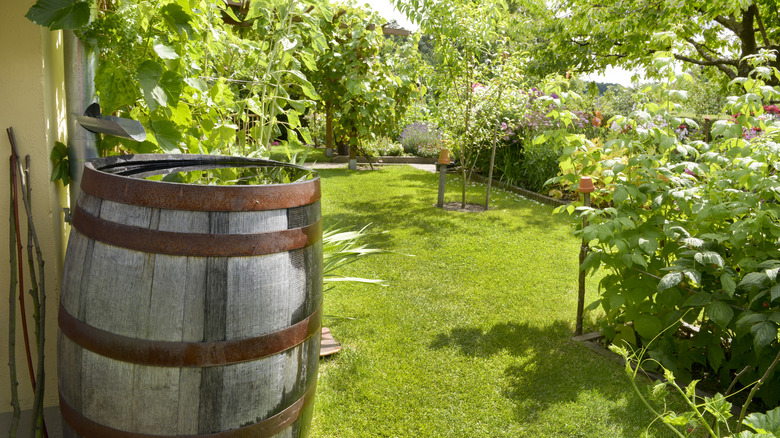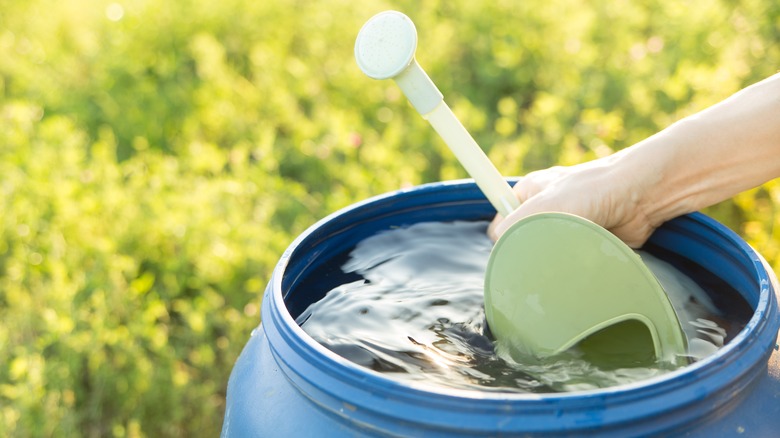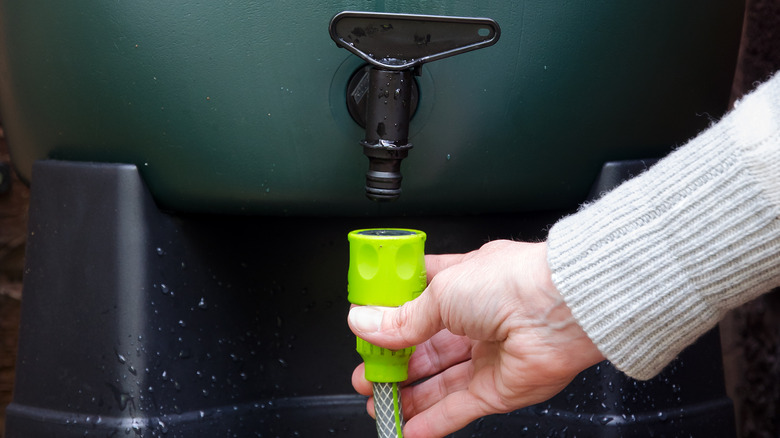The Benefits Of Using Rainwater To Water Your Grass
Placing a rain harvester in your backyard to collect water is a simple way to reduce your water bill, but there are other benefits of using rainwater to water your grass and garden. It's not only a free resource, but it tends to have a bit more of the nutrients your grass needs and fewer of the chemicals in the water that comes from the hose. There's nothing better than nutrient-rich soil and rainwater for your grass. Plus, this helps prevent rainwater from eroding your landscaping as it conserves a valuable natural resource. This can also offer some benefits to reducing pressure on your local watershed in heavy rains.
It's also one of the easiest ways to keep your grass green when the community puts a lawn watering ban in place due to limited rain, and you don't want the drought to ruin your lawn. Even if you don't live in a water-restricted community, this method can help you avoid having to water your lawn every day from the hose. You can devise a system that connects directly to your garden or lawn irrigation system, making the process less labor-intensive, too.
There are a few things to know about the benefits of rainwater for your grass as well as how to use it. What's most important is putting in the time to set up a system that will allow you to collect enough rainwater to keep your grass green and growing.
Consider the difference rainwater makes to grass
Rainwater is different than treated water that comes from the water filtration facility in your community and out of the hose in the backyard. It tends to have a higher level of nitrogen in it, a nutrient that's critical to the photosynthesis process and building of plant cells. Many lawn fertilizers contain nitrogen, but this is one way to get it without the use of fertilizers.
Rainwater also has other benefits for the soil. It is slightly acidic, and when those drops hit the soil, the acid in rain begins to release those nutrients allowing plants to gain access to them. Typically, that includes the stores of copper, manganese, zinc, and iron. All of these are essential to plant growth, but it can be hard for the plant to pull them out of the soil that has an alkaline pH level.
If you are using water from the hose on your lawn, you're limiting access to nutrients. During the filtration process, chlorine and fluoride are typically added to water to help protect health, working as both a disinfectant and a cavity fighter. However, the same chemicals are not as good for plants, including grass, and can actually lead to spotting and discoloration when levels are too high. It's typically not feasible to use purified water on your grass, but rainwater lacks these chemicals, making it a better resource for lawns.
How to use rainwater to water your lawn
If you're wondering how you are going to collect and then disperse rainwater to your lawn without having to carry one bucket at a time across your yard, there are a few easy tricks. First, start by collecting enough, which means you'll need to use rain barrels or above-ground holding tanks that are larger. Ensure anything that you do use isn't accessible to children who may think it's more of a pool.
If you plan to water your garden, flowerbeds, and lawn with rainwater, investing in an electrical pump to move the water from the rain barrel to the irrigation pipes is beneficial. You don't need anything too extensive here. If you don't want to use electrical systems, elevate the holding tank enough so that gravity can work in your favor to move the water through the irrigation system. Another option is simply to attach a sprinkler or soaker hose directly to the collection device. All you have to do is uncork it when you want to water the lawn.
Don't forget to think about all of the surfaces around your home that can help with this process. Set up a collection bin near your home's rain gutters, for example. You can also collect water running off awnings and the shed on any outbuildings you have. This rainwater isn't safe to drink, but it can still provide your lawn with the watering it needs during dry spells.


